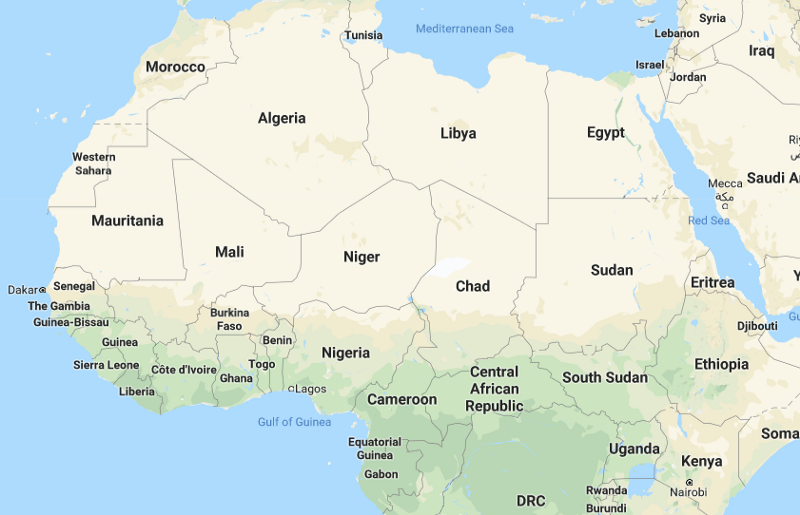Extremist groups such as ISIS and Al-Qaeda have found a home in the Sahel. Communities marginalized by their governments have proved to be the perfect foothold for radical extremism to take root. Up until now, the activities and goals of Isis and Al-Qaeda affiliated organizations based in the Sahel have been regional in nature. As their roots grow deep, these groups will soon develop the capacity to operate internationally.
US military leaders, such as Special Operations Command – Africa’s BG Anderson, stated that ISIS and Al-Qaeda related groups have begun to collaborate in the Sahel region, and “if it’s left unchecked it could very easily develop into a great threat to the West and the United States.” The loss of the caliphate in Syria forced ISIS to search for new ground, and the Sahel was ripe for exploitation. The confluence of conditions: large ungoverned spaces, communities marginalized for a variety of reasons, a robust illicit commerce network, transnational criminal enterprises, and heavy corruption create the perfect environment for an extremist group to grow.
The term “ungoverned space” often truly means that the region is governed via non-state methods such as communal, tribal, religious or other form of governance. Isis and Al-Qaeda have both taken the time to ingratiate themselves with these local forms of leadership in order to gain acceptance and the freedom to operate in those regions. The Sahel is an extremely tough region to operate it in, but extremist groups have taken advantage of the extensive transnational criminal network operating in the area for financing and logistical support. Lack of state oversight and intervention from national security forces provide time and space for extremist groups to grow, evolve, and strengthen.
Ineffective regional coordination between security forces creates seams along the border regions where the groups tend to operate. Nomadic pastoral communities are historically disenfranchised from government services and are often targeted by security forces. These grievances are leveraged as recruiting tools for extremism. If the youth can’t realize their potential through the official channels of formal education, military training, private business, or other form of livelihood, then the only option is a path outside of the government. This path is fraught with criminal organizations, rebel groups, armed militias, and extremist groups.
In closing, now is precisely the wrong time to pull focus, resources, and forces away from the Sahel. Inattention now will result in increased conflict and potential war later, a war with generational impacts. The US must work closely with partner nations to build governance capacity to reach these marginalized communities. The youth of the Sahel are choosing their future now. The choice will have global impacts.
-FWS




